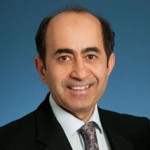

A Toronto hospital network is keeping two researchers’ labs closed even after an Ontario court quashed part of a misconduct finding by the institution.
Some background: After the University Health Network found evidence of falsified data, Sylvia Asa stepped down as Program Medical Director of the Laboratory Medicine Program, the largest hospital diagnostic laboratory in Canada. Due to the investigation, UHN suspended the labs of Asa and her husband Shereen Ezzat. In response, Asa and Ezzat asked an Ontario court to quash the misconduct findings; last month, the court overturned two out of three findings, and asked UHN to reconsider its sanction against the pair.
According to the Toronto Star, on February 4th the UHN notified the researchers that the sanction against them would be upheld, and it would not reopen the researchers’ labs.
The Star spoke to the researcher’s lawyer, Brian Moher who
said Thursday [February 4th] that the hospital’s latest actions come across as “a total lack of responsiveness” to the “unequivocal findings of the court.”
“Suggesting that the court was ‘mistaken’ in its understanding of this matter, in my opinion, undermines the principles of the entire justice system,” he said. “As a general rule, anyone who denies the clear findings of the court declares that court a toothless tiger.”
The court ruling (which you can read in full here) set aside the finding that Asa and Ezzat had fabricated or falsified results, but upheld a finding of “material non-compliance.” It also asked UHN to cover the researchers’ $20,000 legal bill. Given that the finding of fabrication and falsification was vacated, the court said:
…the question of sanction should be remitted to [UHN] for reconsideration in light of the findings of this court.
UHN responded that they didn’t actually disagree with the court — there had been misconduct in Asa and Ezzat’s labs, though it was not explicitly clear who committed it. From the Star:
“We agree with the Court that a finding of fabrication and falsification specifically against Drs. Asa and Ezzat — had it been made — should be set aside,” hospital spokeswoman Gillian Howard wrote in an email to the Star.
“But … UHN never interpreted the Investigation Committee’s report as including such a finding.”
We reached out to a spokesperson for UHN about the decision to uphold the sanction, who told us:
UHN is following the process as outlined by the courts in paragraphs 69, 70 and 71 [in the court ruling]. As we are in that process now, we have no further comment.
She also confirmed that
the investigation of papers is ongoing.
This isn’t the first time a misconduct investigation has made its way into a courtroom. Last year, the Danish high court cleared physiologist Bente Klarlund Pedersen, of the University of Copenhagen, of a misconduct finding from the Danish Committees on Scientific Dishonesty. At the time, Nature talked to Daniele Fanelli, research misconduct expert at Stanford University who
expects courts to play a more prominent role in deciding such cases in the future. Prosecutions of scientists are on the rise, and many countries are drafting legislation specifically addressing misconduct. “I think we should expect that some of these individuals accused of scientific misconduct will fight back.”
Some people who fight back are unsuccessful, like Harvard stem cell researcher Piero Anversa who sued Harvard over reputation damage, or XMRV-chronic fatigue syndrome researcher Judy Mikovits, who sued the Whittemore-Peterson Institute for conspiring against her with law enforcement; in both cases, judges dismissed the suits.
Like Retraction Watch? Consider making a tax-deductible contribution to support our growth. You can also follow us on Twitter, like us on Facebook, add us to your RSS reader, sign up on our homepage for an email every time there’s a new post, or subscribe to our new daily digest. Click here to review our Comments Policy.
So the end result of this appears to be that UHN can close a lab in which misconduct was shown to occur, even though the misconduct was not demonstrated to have been performed personally by the head of that lab. This seems preferable to the old “throw the post-doc under a bus” approach that we’ve seen in some other cases. If it’s your name on the door, you’re responsible for vetting the data that go out through that door.
The three-judge review findings reveal that the UHN investigating committee found that “the repeated failures of Drs. Ezzat and Asa to comply with these standards for manuscript preparation, including the inability to provide the primary data to match published images and the failure to disclose alterations according to the authorship policies, to constitute Material Non-Compliance under the policy.” (Section [61] of findings.)
The issue that it can not be determined who altered images in multiple papers over a fourteen year period from 2002 to 2015 is beside the point. The glaring fact remains that primary data can not be provided. How scientific conclusions can remain unaltered given that primary data is not even available is an incredible claim that Drs. Asa, Ezzat and their lawyer keep making, one that can not pass scientific muster.
If the pair are highly respected scientists in their field surely some other university will take them?
Sylvia Asa continues as Professor at University of Toronto’s Toronto General Hospital:
http://www.lmp.utoronto.ca/research/faculty-research-database/asa-sylvia
and the bio on that web page states “Our laboratory focuses on investigating the mechanisms underlying tumour development and progression in endocrine tissues.”
Since their labs were closed and the UHN stated they would not be reopened, what does “our laboratory” refer to? No specific lab or research group is mentioned there.